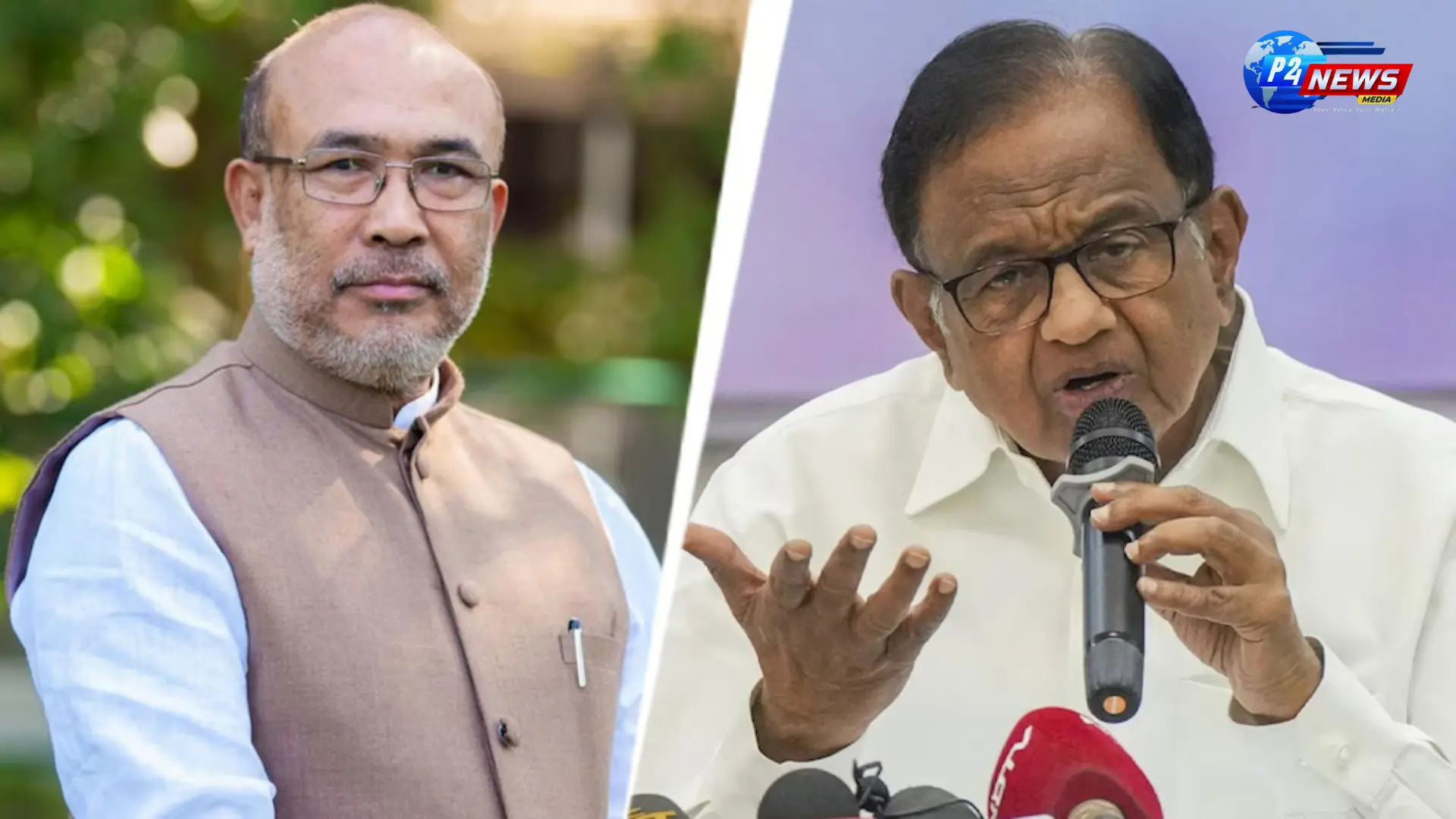Manipur's CM N Biren Singh confronts Congress leader P Chidambaram regarding the increasing violence and blames past policies for current issues in the state.
Manipur's CM N Biren Singh confronts Congress leader P Chidambaram regarding the increasing violence and blames past policies for current issues in the state.
In a heated exchange, Manipur Chief Minister N Biren Singh has raised serious allegations against P Chidambaram, a prominent Congress leader, concerning the ongoing militancy in the state. Singh accused Chidambaram of being a catalyst for the current turmoil in Manipur, particularly after an unsettling surge of violence erupted following a period of relative calm. In a counter to Chidambaram's recent comments advocating for regional autonomy among different communities in Manipur, Singh disclosed a picture that he claims illustrates Chidambaram's questionable connections with foreign entities linked to insurgency.
The roots of this dispute can be traced back to the issues surrounding illegal immigration and the dynamics between various ethnic groups in Manipur. Singh contends that the seeds of disruption were sown during the Congress-led government's tenure, specifically under Chidambaram's leadership as the Union Home Minister when the controversial suspension of operations (SoO) agreement was brokered. This agreement, he argues, allowed unlawful elements to gain a foothold in the region—compounding the struggles of indigenous populations and escalating communal tensions.
Singh's remarks came after Chidambaram expressed the notion that the Meitei, Kuki-Zo, and Naga groups could coexist peacefully under genuine regional governance. However, the former home minister quickly removed his post after local Congress leaders cautioned against inflaming the already volatile situation, emphasizing the need for sensitivity amid ongoing conflicts.
Amidst rising fatalities—including women and children, which have alarmed the community—Singh's comments reflect a broader concern for the integrity of Manipur's territorial claims and the impact of cross-border immigration from Myanmar. His critique pointed to Chidambaram's historical decisions that, according to him, contributed significantly to the present crisis faced by Manipur's residents.
The ethnic landscape of the region is complex, with the Meitei community emphasizing the need to protect their integrity, while the Kuki tribes are advocating for a separate administration for the hill areas, further exacerbated by the historical ambitions of the Naga communities. The shifting balance of power, resources, and political representation continues to fuel unrest.
Critics of the current governance structure in Manipur assert that the SoO agreement has been a flashpoint of discord, igniting longstanding grievances related to land rights and political representation. This criticism was echoed by former Chief Minister O Ibobi Singh, who pointed out historical complexities involving ceasefire agreements that were made without adequate state government approval.
With tensions climbing, it's evident that the path to reconciliation and peace in Manipur requires addressing not only historical grievances but also contemporary challenges related to governance, immigration, and ethnic representation. Singh's call for accountability from Chidambaram and the Congress party highlights the necessity for political leaders to take responsibility for their past actions, as the citizens of Manipur continue to grapple with the repercussions of longstanding conflicts.
'
Like
Dislike
Love
Angry
Sad
Funny
Pray
'Trump Tracker: Tulsi Gabbard's Surprising Appointment as US Intelligence Chief
November 14, 20249th Ayurveda Day in Melbourne: A Celebration of Ayurvedic Innovations and Global Health Impact
November 10, 2024🍪 We Value Your Privacy and Experience Hi there! We use cookies to enhance your browsing experience, provide personalized content, and analyze site traffic. By continuing to use our site, you consent to our use of cookies.







Comments 0